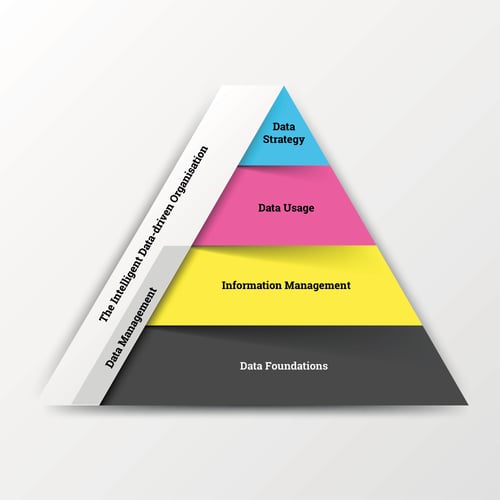Our mission is to help organisations become data-driven. A move that delivers better tactical and strategic decisions. But, how do you get started and tackle the related challenges easily?
1. Data Strategy
“We want to do more with data, but don’t know where to start.”
This is where a data strategy comes into play. After all, it will inform you where to invest in order to achieve your objectives. For companies at the beginning of their data journey, a data strategy also marks the starting point: the selection of one or more use cases that contribute to the successful execution of the business strategy. Those cases clarify which investments in your data ecosystem should be prioritised.
2. Business Intelligence
“Our dashboard developer is always busy.”
This is a pain point that explains the growing interest in “self-service” BI tools, which allow you to create your own reports. “Self-service” BI tools lighten the workload of dashboard makers and make difficult discussions about what exactly a report should contain unnecessary. Conversely, a proper dashboard provides an at-a-glance overview of how your business is doing and achieving its goals.
3. Data Science
“Our problems require more than descriptive analyses.”
Dashboards are great tools for monitoring trends in customer behavior, but they cannot always provide the deeper insights that are required for taking certain tactical decisions. Data science, however, can produce models that provide these insights. They can, for example, predict the likelihood of churn based on customer characteristics and behaviors.
4. Information Management
“For some, a customer is someone who buys something. For others, it is someone who has logged into their account at least once in the past year.”
This obviously leads to miscommunication and inefficiency. The solution lies in documentation practices that ensure your data is findable, understandable and usable.
5. Data Foundations
“We cannot combine data sources because they are isolated in silos”.
You will encounter this problem when you want to use your data in a way that requires linking datasets, but when the knowledge is lacking or the data is simply not accessible. Well, the solution lies in a data platform, such as a data lake, a data warehouse or a data lakehouse, whether cloud-based or not.




